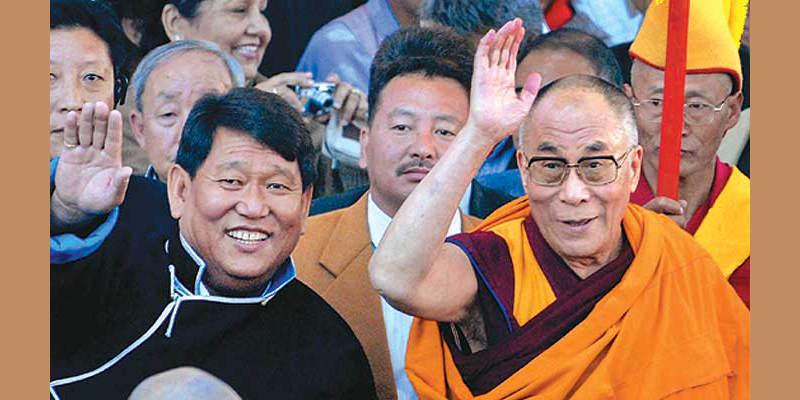China furiously opposed the visit of US ambassador Richard Verma to Tawang on October 21 for the Tawang Festival while India disregarded their criticism. This time it is His Holiness the Dalai Lama who is now expected to visit Arunachal Pradesh next year. The Modi government has issued a statement saying the Dalai Lama visiting Arunachal Pradesh is not a problem in response to Chinese objection.
His Holiness the Dalai Lama has been residing in India for the past around sixty years now and India has certainly taken very good care of it. Indian government stated that the Dalai Lama has no bar in visiting any region of India.
“There is no bar on Dalai Lama visiting any place in India hence Arunachal visit in March next year is technically not a problem.” said the statement by the Modi government.
The Chief Minister of Arunachal Pradesh, Pema Khandu extended an invitation to His Holiness the Dalai Lama to visit the state on October 9. While China has always criticised India against allowing His Holiness to visit north eastern part of India, which China claims as ‘Southern Tibet’ and hence a part of China, India clears the visit by the Dalai Lama to Arunachal for it being an important integral part of India.
Back in 2009, India had dismissed the objections raised by China when Dalai Lama visit Tawang. This visit by His Holiness is schedule around the second week of March, 2017.
The Hindu reported that this visit did not consist of religious programs rather he will be visiting the region, especially Tawang because of the ‘special connection’ he shares with it. He took the route through Tawang while escaping Tibet.
The Tibetan spiritual leader escaped Tibet and sought refugee in India in 1959 when China violently invaded Tibet. His Holiness led the Tibetan movement in exile through complete non-violent means and proposed a mutually beneficial resolution called the ‘Middle Way Policy’ which seeks Genuine Autonomy for Tibet within the People’s Republic of China.







Leave a Reply